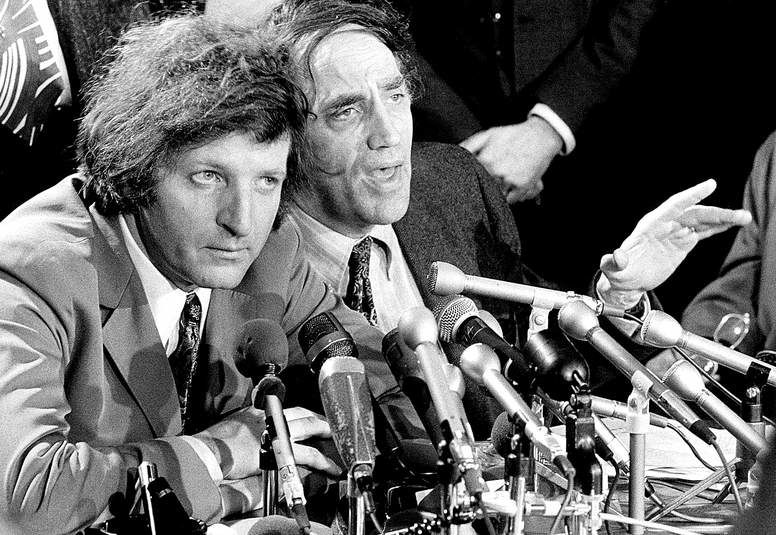Leonard Weinglass known as crusading defense lawyer
Published 5:00 am Friday, March 25, 2011

- Leonard Weinglass, left, and Willam Kunstler in 1972. Weinglass, a defense lawyer whose cases included the Chicago Seven trial, the Pentagon Papers case and the Hearst kidnapping, has died at age 77.
Leonard Weinglass, a crusading lawyer who championed radical and liberal causes and clients in some of the most controversial trials of the 1960s and ’70s, including the Chicago Seven and Pentagon Papers cases, died Wednesday in New York City. He was 77.
The cause was pancreatic cancer, said Michael Krinsky, a colleague and friend of 40 years.
Weinglass, who practiced in Los Angeles for two decades before moving to New York, developed a reputation as a firebrand during the Chicago Seven conspiracy case against anti-Vietnam War protesters at the 1968 Democratic National Convention.
The defendants included Tom Hayden, Abbie Hoffman and Jerry Rubin. Although Weinglass was considered less boisterous than co-counsel William Kunstler, he was nonetheless cited for contempt 14 times during the five-month trial, which resulted in acquittals.
He went on to defend other notorious clients, including Jane Fonda, Symbionese Liberation Army members William and Emily Harris, Angela Davis, Kathy Boudin and Mumia Abu-Jamal. He also represented former President Jimmy Carter’s daughter, Amy, who in 1987 was charged with disorderly conduct after an anti-CIA demonstration at the University of Massachusetts.
Still drafting briefs
Until days before his death, Weinglass was drafting briefs on behalf of the so-called Cuban Five — five Cuban intelligence agents who were convicted in 2001 of spying in the United States on behalf of the government of then-President Fidel Castro.
“He was committed to defending people who had controversial political views and in one way or another was trying to change things, from civil rights to the anti- war movement,” Krinsky said.
Weinglass’ most important case was the Pentagon Papers trial, which was brought against defense analyst Daniel Ellsberg and researcher Anthony Russo for Ellsberg’s unauthorized release of a top-secret government history of U.S. involvement in the Vietnam War. The case against them was dismissed May 11, 1973, after the court learned that a covert team had broken into the offices of Ellsberg’s psychiatrist looking for information to discredit the star defendant.
As the lead defense lawyer in that case, Weinglass “understood the political significance of the papers and what the Nixon administration was trying to suppress. It was Act I of Watergate,” said Mark Rosenbaum, chief counsel for the American Civil Liberties Union of Southern California, who worked with Weinglass on the case.
Weinglass was born Aug. 27, 1933, in Belleville, N.J. His mother was, he once recalled, “an Adlai Stevenson Democrat,” but his pharmacist father was a Republican. When Weinglass was defending the Chicago Seven, his father told him, “They ought to throw all of you in jail without bail.”
Clarence Darrow fan
He knew from an early age that he wanted to become a lawyer. He read the words of Clarence Darrow while sweeping the floors in his uncle’s law office. A football star in high school, he earned a bachelor’s degree from George Washington University in 1955 and a law degree from Yale University in 1958. After two years in the Air Force, he opened a storefront criminal defense practice in Newark, N.J.






